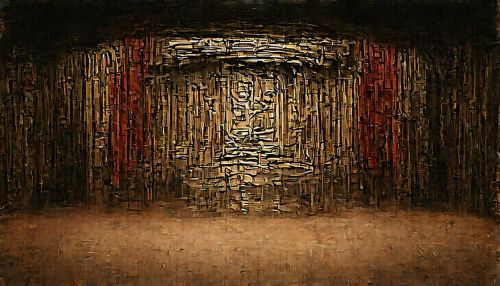French Tragedy
Origins and Early Development
The French Tragedy, or Tragédie française, is a form of theatre that originated in the 16th century, during the Renaissance period in France. It was heavily influenced by the Greek and Roman tragedies, with the addition of unique French elements and conventions.


The first French tragedies were written by Étienne Jodelle, a playwright who sought to revive the classical Greek tragedy. His play Didon se sacrifiant (1558) is considered the first French tragedy. Jodelle's works were characterized by their adherence to the three unities of action, time, and place, a concept derived from Aristotle's Poetics.
The Golden Age of French Tragedy
The 17th century, often referred to as the Grand Siècle or the "Great Century", marked the golden age of French tragedy. This period saw the emergence of great tragedians like Pierre Corneille, Jean Racine, and Molière, who significantly shaped the genre.
Corneille's Le Cid (1637) was a groundbreaking work that challenged the strict Aristotelian unities and introduced complex characters and moral dilemmas. Racine, on the other hand, adhered more closely to the classical rules and is known for his psychological insight and the intensity of his dramatic situations. His works, such as Phèdre (1677), are considered masterpieces of French tragedy.
Evolution in the 18th and 19th Centuries
The 18th and 19th centuries witnessed a shift in French tragedy, reflecting the changing social and political landscape. The French Revolution and the subsequent Napoleonic Era had a profound impact on the themes and styles of tragedy.
Voltaire, a leading figure of the Enlightenment, wrote tragedies that were philosophical and political in nature. His Zaïre (1732) is a notable example of this trend.
In the 19th century, the Romantic movement brought about a new form of tragedy, often termed as the "Romantic tragedy". Playwrights like Victor Hugo and Alfred de Musset broke away from the classical rules and embraced individualism, emotion, and the supernatural in their works.
French Tragedy in the 20th Century and Beyond
In the 20th century, French tragedy continued to evolve, reflecting the existential and absurdist themes of the era. Playwrights such as Jean-Paul Sartre, Albert Camus, and Samuel Beckett redefined the genre, exploring themes of existential angst, absurdity, and the human condition in their works.
Today, French tragedy continues to be a vibrant part of the French theatre, with contemporary playwrights exploring new themes and pushing the boundaries of the genre.
